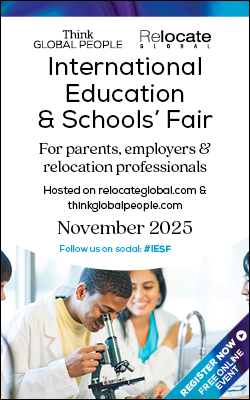How can HR have a voice in the Brexit negotiations?
The first IRN Brexit HR Forum attracted a high-level programme of speakers, many keen to encourage employers to get more involved in determing the direction and detail of the Brexit negotiations.

Signposting progress in Brexit negotiations
“It is hard to see where the Brexit negotiations are going,” observed Mr Nevin. “Obviously, the government needs to keep its cards close to its chest. But there is no doubt it is a confusing time.“There is an entire government department set up for managing Brexit, but with other departments also involved, it adds to the confusion of where to go.“Ministers have already held meetings with over 40 different sectors. So, are businesses in a position to influence government policy? Yes! The question is, how?"Read more from the IRN's Brexit HR series:
- Timing perfect for first HR forum in IRN Brexit series
- How can HR have a voice in the Brexit negotiations?
- Recruiting, retaining and rewarding a post-Brexit workforce
- Does HR analytics have a role in Brexit preparations?
- The head, heart and brain of Brexit: HR's role in managing uncertainty
- Brexit?: See the bigger picture...
IoD’s approach to immigration post-Brexit
Mr Nevin outlined the IoD’s broad, ten-point framework it believes will equip the UK with a solid future immigration system and the required access to talent. In setting out the plans, the IoD is aiming “for a sensible post-Brexit strategy for retaining and attracting a world-class workforce that addresses all business needs and public concerns."The framework calls on policymakers to:- Ditch the “illogical and arbitrary” immigration target. The IoD believes this has led to public distrust. “We find [the target] very crude, and it fails to differentiate between different categories of employers and sector needs.”
- Allow international students and academics unrestricted access to the UK. The higher education sector contributes £80bn a year to the public purse. Overseas students account for a third of the government’s migration target, but “voters don’t regard them as a problem,” contended Mr Nevin. “ERASMUS and other exchange schemes also have wider benefits, including students are more likely to feel confident doing business with other countries. The universities among those most at risk from Brexit are also those that are leading in STEM.”
- Adopt better migration data and recording. “We need evidence-based policy making like never before. We have to have good-quality information in government and for it to be cross-checked. The government should review how it records statistics and employers too should capture data so they can feed into this.”
- Secure quality migration statistics for planning public services. Public services are struggling because of “successive governments’ failure to prepare for the impact of migration,” suggested Mr Nevin. “Poor state planning leads to the need for more migration. We also need to find ways of making roles with shortages more attractive for UK workers.”
- Simplify immigration processes in future, especially for small- and medium-sized enterprises (SMEs). “The criteria can be very crude, for example the annual salary floors for Tier 2 visa applicants. This makes it easy for banks to bring people in, but not so for start-ups or professions like nursing or teaching.”
- Commit to stronger enforcement of legislation to reduce abuse of the immigration system. With one immigration case worker for around every 20,000 overseas workers, “we need to make sure the public has faith in the system" and the reputation of UK employers remains positive.
- Communicate and share the benefits of immigration. Balancing explanations of why the UK needs to recruit people with certain skills from overseas, while enabling young people from local communities to break into the employment landscape through closer work with schools and in partnership with further, vocational and higher education providers.
- Ensure and encourage better integration of people into the workplace, for example through community courses and mandatory language training, such as the schemes operating in Finland.
- Educate British workers to meet the needs of the British economy. “This is the most crucial point,” said Mr Nevin. “After Brexit, the nature of trading relationships will change so some sectors will decline where others will thrive. Our recent survey shows leaders believe skills shortages are one of the biggest inhibitors to growth. There is a huge opportunity for companies to work with apprenticeship providers.”
- Build a national consensus about immigration.
What are your thoughts on the framework? Have your say on future immigration and skills policy by responding to the Migration Advisory Committee's consultation
Access hundreds of global services and suppliers in our Online Directory Get access to our free Global Mobility Toolkit
Get access to our free Global Mobility Toolkit 
©2025 Re:locate magazine, published by Profile Locations, Spray Hill, Hastings Road, Lamberhurst, Kent TN3 8JB. All rights reserved. This publication (or any part thereof) may not be reproduced in any form without the prior written permission of Profile Locations. Profile Locations accepts no liability for the accuracy of the contents or any opinions expressed herein.


































